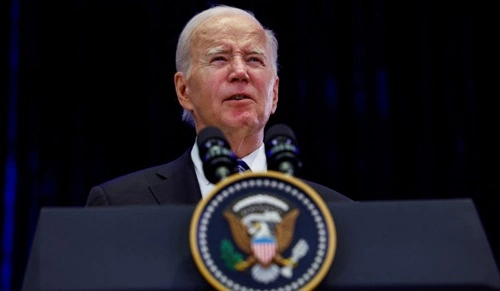In a rare display of bipartisan collaboration, the Biden administration has publicly acknowledged the pivotal role played by President-elect Donald Trump’s team in facilitating a ceasefire agreement between Israel and Hamas. This truce aims to halt the hostilities in the Gaza Strip that have persisted since October 7, 2023.
Ceasefire Agreement Details

The ceasefire, structured in three phases, includes provisions for the release of hostages and prisoners, as well as measures to address the humanitarian crisis in Gaza. The initial phase, set to commence on January 19, 2025, involves a six-week cessation of hostilities. During this period, Hamas is expected to release 33 Israeli hostages, including women, children, and the elderly, in exchange for hundreds of Palestinian prisoners held in Israel. Subsequent phases will focus on further prisoner exchanges, the withdrawal of Israeli forces from populated areas of Gaza, and the facilitation of humanitarian aid and reconstruction efforts.
Bipartisan Efforts in Negotiation
State Department spokesperson Matthew Miller emphasized the critical involvement of President-elect Trump’s team in finalizing the agreement. He stated, “When it comes to the involvement of President-Elect Trump’s team, it has been absolutely critical in getting this deal over the line.” Miller further noted that this collaboration exemplifies how Americans can achieve significant outcomes when working together across partisan lines.
President Biden also highlighted the extensive diplomatic efforts leading to the agreement, describing the negotiations as “one of the most difficult” he has experienced. He acknowledged the contributions of both his administration and the incoming Trump team in reaching this milestone.
International Mediation and Reactions
The ceasefire agreement was facilitated through the mediation efforts of Qatar, Egypt, and the United States. Qatar’s Prime Minister, Sheikh Mohammed bin Abdulrahman Al Thani, expressed hope that the ceasefire would become permanent, while international leaders, including those from the United Nations and the European Union, welcomed the agreement and underscored the importance of delivering humanitarian aid to Gaza.
Israeli officials have expressed mixed reactions to the agreement. President Isaac Herzog and Foreign Minister Gideon Saar described the deal as “painful” but necessary for the release of hostages. Prime Minister Benjamin Netanyahu personally thanked President-elect Trump for his role in the negotiations.
Challenges Ahead
While the ceasefire marks a significant step toward de-escalation, challenges remain in its implementation. Ensuring the safe release of hostages, the orderly exchange of prisoners, and the effective delivery of humanitarian aid will require continued cooperation among all parties involved. Additionally, the transition between U.S. administrations adds a layer of complexity to the diplomatic landscape.
Both President Biden and President-elect Trump have expressed commitment to supporting Israel’s security and addressing the humanitarian needs in Gaza. Their collaborative efforts in this ceasefire agreement may set a precedent for future bipartisan initiatives in U.S. foreign policy.
Conclusion
The acknowledgment of President-elect Trump’s team’s involvement by the Biden administration highlights a moment of unity in U.S. politics, demonstrating that collaborative efforts can lead to significant achievements on the international stage. As the ceasefire takes effect, the focus will shift to its implementation and the pursuit of a lasting resolution to the conflict between Israel and Hamas.
Hina Abbasi is Editor and a passionate sports and entertainment content writer at WinnersMaze.com. Hina’s expertise spans across a wide range of sports, and interest in many TV shows allowing her to deliver insightful analysis and compelling stories that resonate with readers.

